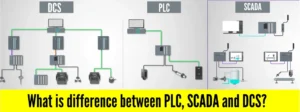Introduction
As businesses embrace digital transformation, containerization and orchestration technologies like Docker and Kubernetes play a crucial role in streamlining application deployment and management. But which one is right for your needs?
In this blog, we’ll explore Kubernetes vs. Docker, how they differ, and how they fit into modern application development and deployment.
Understanding Docker and Kubernetes
What is Docker?
Docker is an open-source containerization platform that enables developers to package applications and their dependencies into portable, lightweight containers. It helps ensure consistency across different environments, whether on-premise or in the cloud.
Key Benefits of Docker:
- Easy deployment and scalability.
- Lightweight and efficient container runtime.
- Ensures consistency across development, testing, and production environments.
- Simplifies software updates and rollbacks.
What is Kubernetes?
Kubernetes (K8s) is an open-source container orchestration platform that automates the deployment, scaling, and management of containerized applications. It is designed to handle large-scale deployments and ensures high availability and fault tolerance.
Key Benefits of Kubernetes:
- Automates scaling, deployment, and management of containerized applications.
- Provides high availability and load balancing.
- Efficient resource utilization across multiple nodes.
- Supports self-healing by replacing failed containers automatically.
Kubernetes vs. Docker: Key Differences
| Feature | Docker | Kubernetes |
|---|---|---|
| Purpose | Containerization | Container Orchestration |
| Scalability | Limited to single-host scaling | Multi-host scaling, auto-scaling, and load balancing |
| Networking | Requires Docker Compose for multi-container apps | Built-in service discovery and networking capabilities |
| Management | Manually managed containers | Automated container deployment and scaling |
| Fault Tolerance | Limited self-healing | Self-healing with automatic failover |
How Kubernetes and Docker Fit into Modern Applications
Both Docker and Kubernetes enhance application deployment and scalability in the following ways:
1. Scalable Deployment Solutions
- Docker enables developers to package applications into lightweight containers for quick deployment across environments.
- Kubernetes allows for auto-scaling of workloads, ensuring optimal resource allocation based on demand.
2. Cloud and Edge Computing
- Docker is ideal for deploying applications on cloud or edge devices, reducing latency and improving local data processing.
- Kubernetes ensures seamless orchestration of cloud-native applications, connecting various environments efficiently.
3. High Availability and Reliability
- Docker provides consistency for deploying applications across various environments.
- Kubernetes ensures high uptime for mission-critical applications, with automatic failover and redundancy mechanisms.
4. Multi-Cloud and Hybrid Deployments
- Docker helps standardize applications, making them easy to deploy across multi-cloud and hybrid environments.
- Kubernetes provides dynamic load balancing and self-healing capabilities, making applications more resilient.
Choosing the Right Technology for Your Deployment
- Use Docker if you are just getting started with containerization and need a lightweight, portable solution for deploying applications.
- Use Kubernetes if you need to scale and orchestrate multiple containers across a distributed infrastructure.
- Combine Both: Many organizations use Docker for containerization and Kubernetes for orchestration to achieve maximum flexibility and scalability.
Conclusion
Both Docker and Kubernetes are powerful tools that play a vital role in modern application deployment. While Docker simplifies containerization, Kubernetes enables automated scaling and orchestration for complex environments.
At IoTech Controls, we help businesses implement containerization and cloud-native solutions to optimize automation, efficiency, and scalability.
🌐 Website: https://iotechcontrols.com/
📞 Call Us: 864-824-4468



